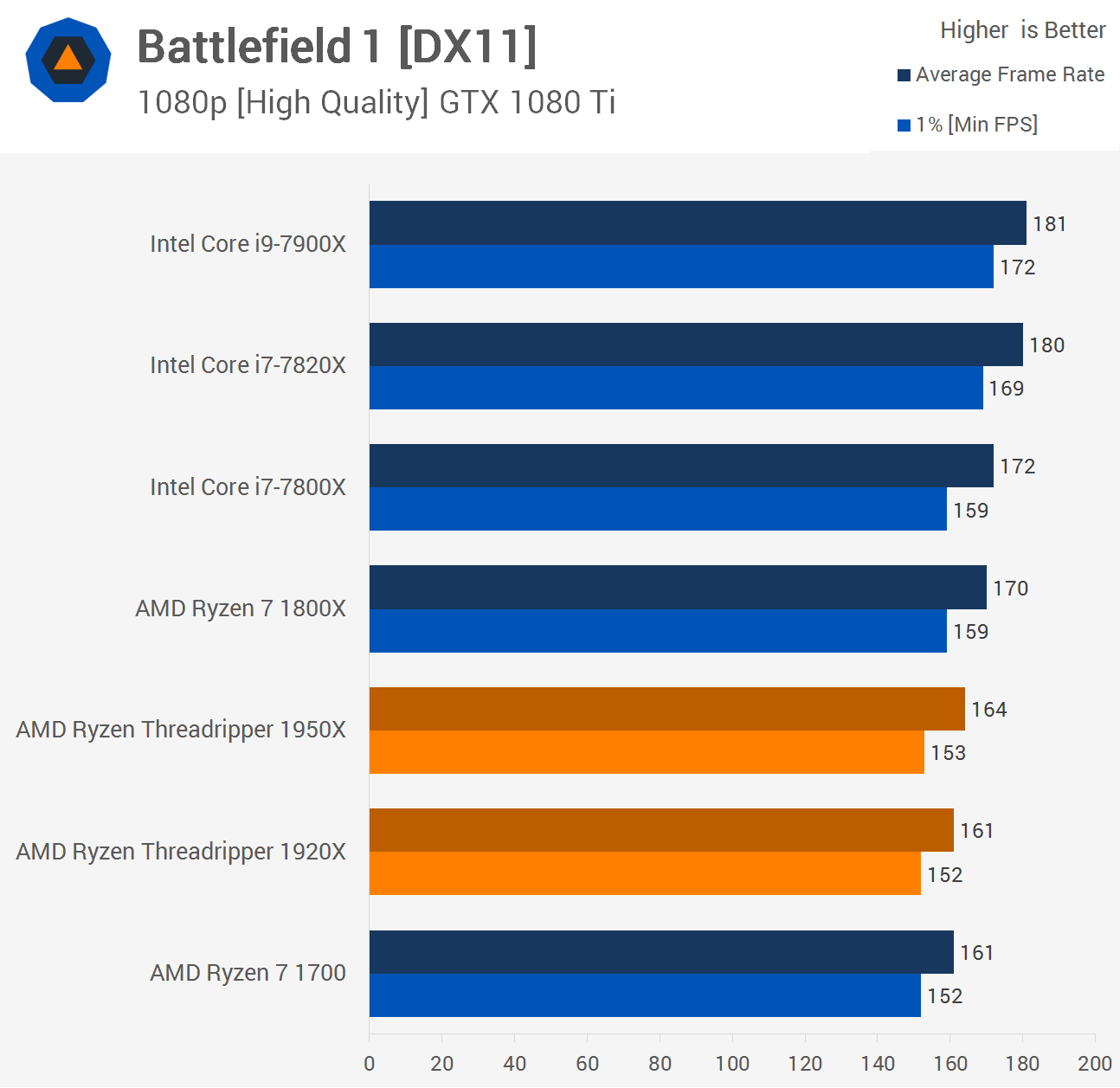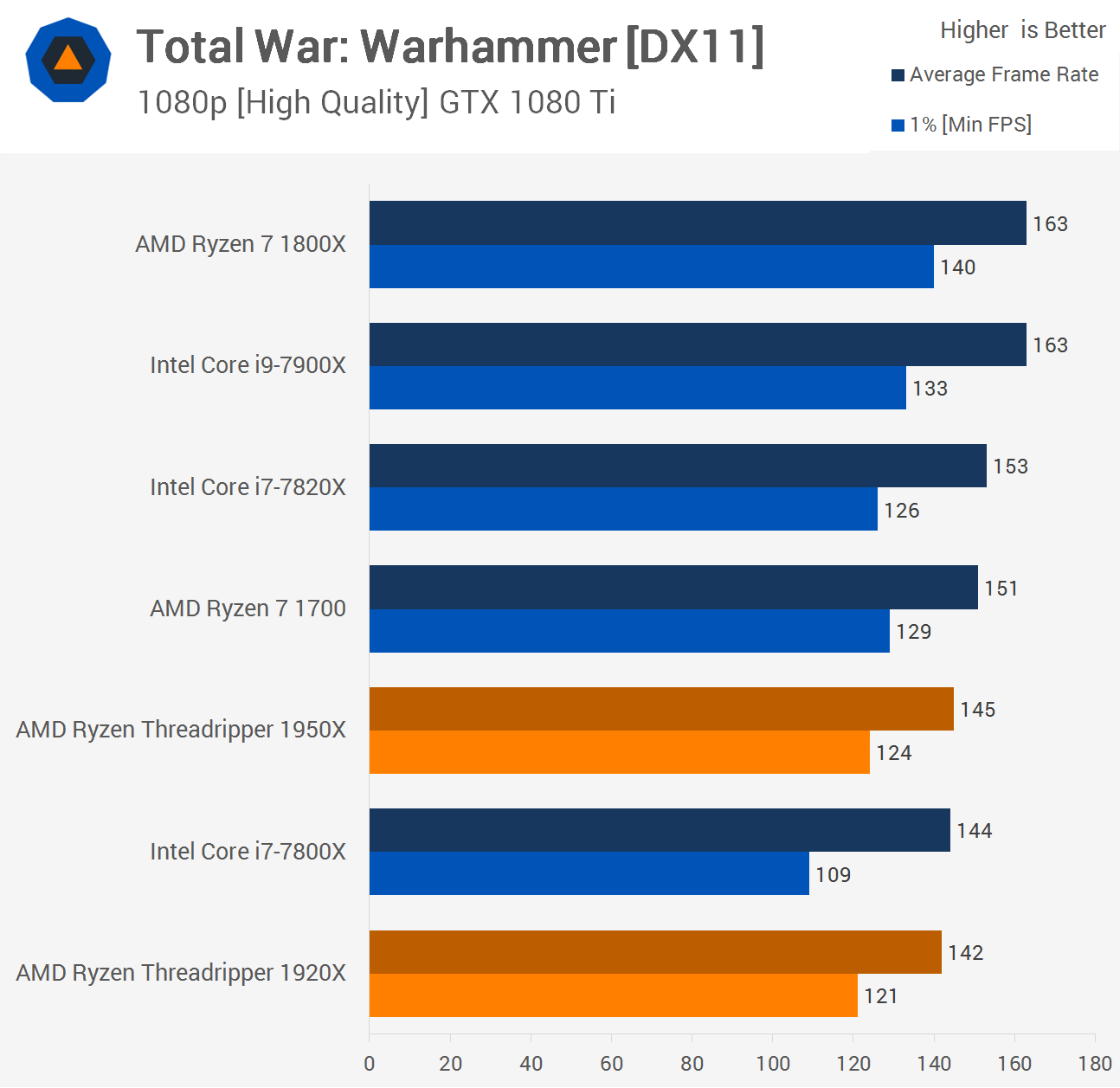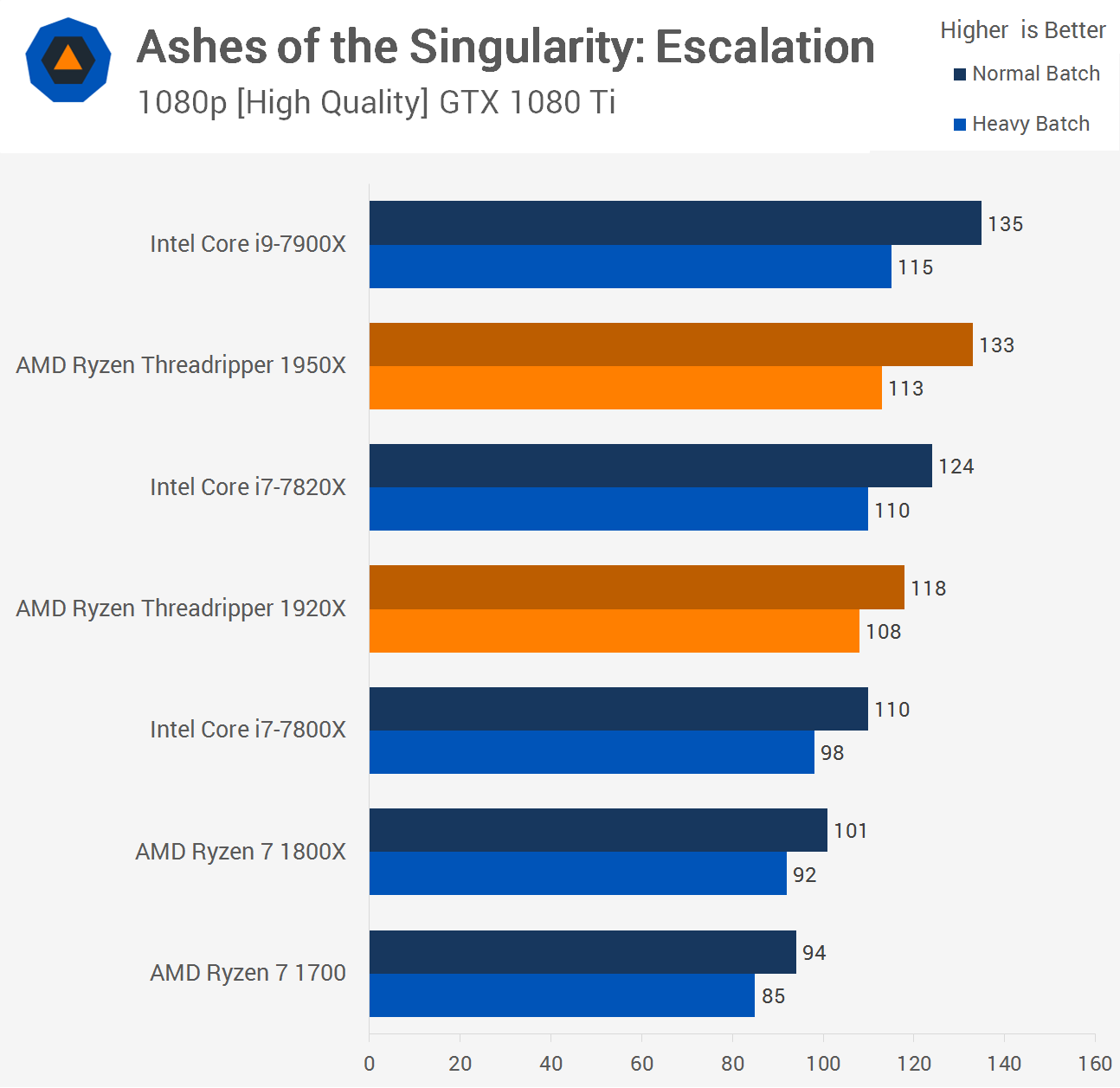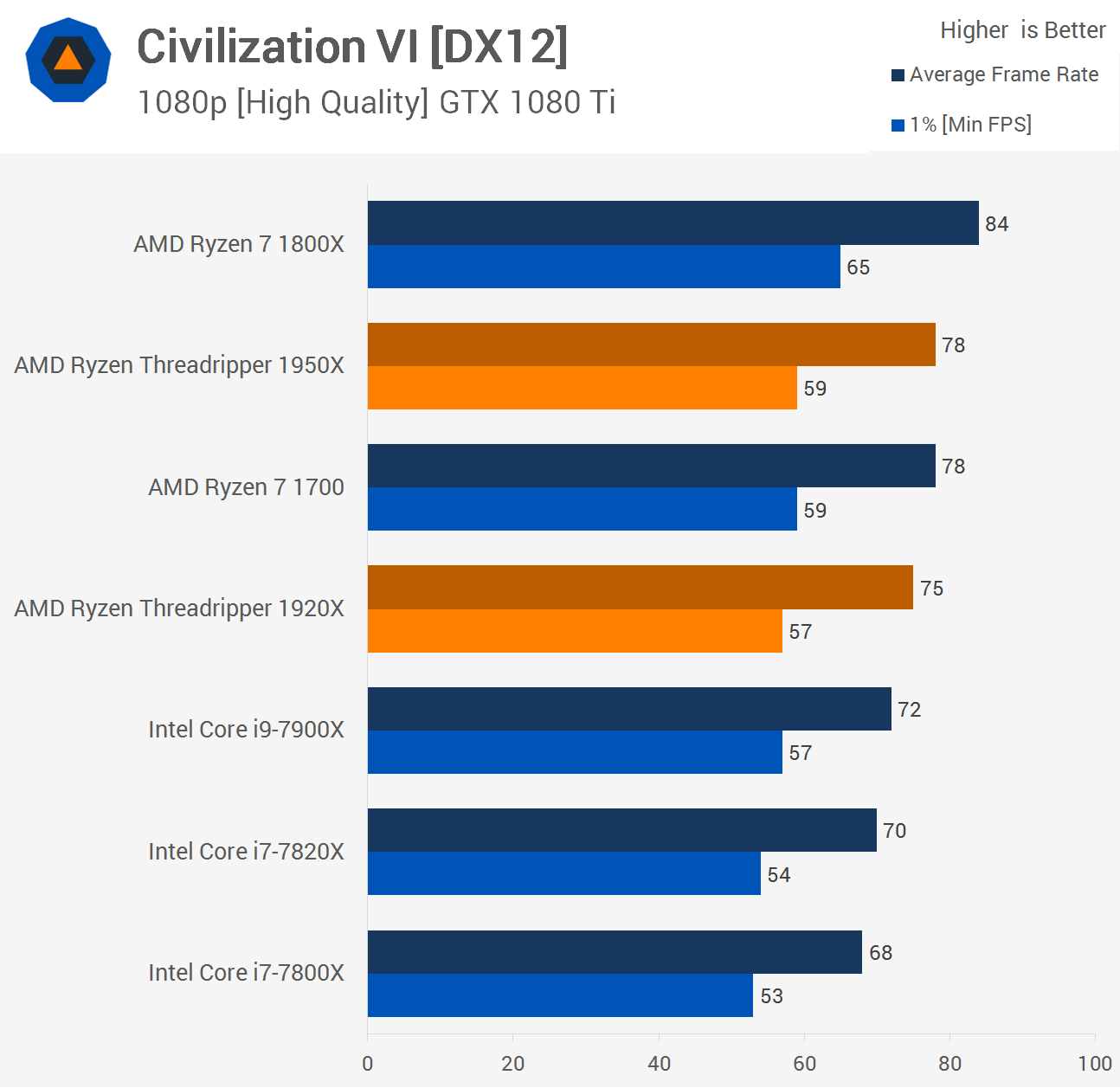Gaming Performance
Before we get to the gaming benchmarks, be aware that there are two different memory access modes for Threadripper and they impact gaming performance quite a bit. By default, the CPU is configured to use the distributed mode which uses a UMA or Uniform Memory Access configuration. This method works best for the productivity workloads we just saw and since it's the default configuration I decided to test the games using this mode. That said, I will compare UMA vs. NUMA performance as well.

First up we have Battlefield 1 and although performance doesn't look great, it doesn't look bad either with the Threadripper CPUs delivering similar performance to the R7 1700. That does however make them quite a bit slower than the Skylake-X CPUs, particularly the 7820X and 7900X. Please note that for our gaming tests I've lowered the quality settings slightly to try and reduce the GPU bottleneck.

Moving to Total War: Warhammer we see some pretty ordinary performance, particularly in relation to Ryzen 7. It's possible the game will be updated to better support Threadripper, that said though we are pushing over 100fps at all times so while comparatively slow when compared to the 1800X and 7900X, Threadripper's not exactly slow.

The 1950X performed well when testing with Ashes of the Singularity: Escalation, basically matching the Core i9-7900X, while 1920X wasn't that far off, beating the 7820X. Both Threadripper CPUs were much faster than the Ryzen 7 models.

Ryzen 7 has proven to be very fast in Civilization VI and while not as fast, Threadripper also performs well in this title, beating out the Intel CPUs.

The last game we have time for is F1 2016 and here Threadripper slips behind Ryzen 7 and well behind Skylake-X. With the quality preset reduced to high we are seeing some pretty massive frame rates from the Intel processors.
